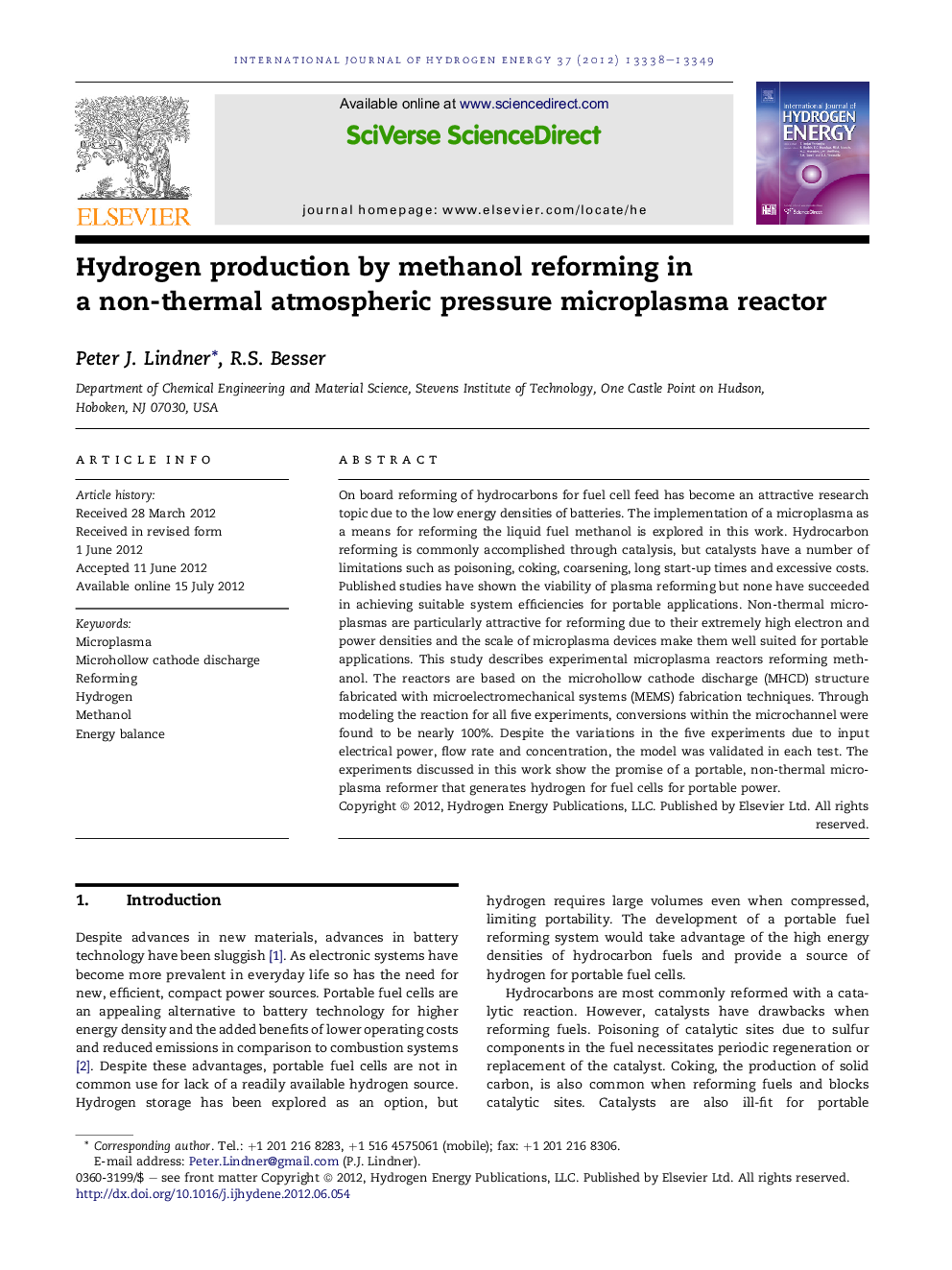| کد مقاله | کد نشریه | سال انتشار | مقاله انگلیسی | نسخه تمام متن |
|---|---|---|---|---|
| 1282228 | 1497551 | 2012 | 12 صفحه PDF | دانلود رایگان |

On board reforming of hydrocarbons for fuel cell feed has become an attractive research topic due to the low energy densities of batteries. The implementation of a microplasma as a means for reforming the liquid fuel methanol is explored in this work. Hydrocarbon reforming is commonly accomplished through catalysis, but catalysts have a number of limitations such as poisoning, coking, coarsening, long start-up times and excessive costs. Published studies have shown the viability of plasma reforming but none have succeeded in achieving suitable system efficiencies for portable applications. Non-thermal microplasmas are particularly attractive for reforming due to their extremely high electron and power densities and the scale of microplasma devices make them well suited for portable applications. This study describes experimental microplasma reactors reforming methanol. The reactors are based on the microhollow cathode discharge (MHCD) structure fabricated with microelectromechanical systems (MEMS) fabrication techniques. Through modeling the reaction for all five experiments, conversions within the microchannel were found to be nearly 100%. Despite the variations in the five experiments due to input electrical power, flow rate and concentration, the model was validated in each test. The experiments discussed in this work show the promise of a portable, non-thermal microplasma reformer that generates hydrogen for fuel cells for portable power.
► Microplasma reforming experiments are carried out on methanol.
► Microhollow cathode discharge devices used as methanol reformers for the first time.
► Mass and energy balances of experiments are determined using analytical methods.
► Selectivity of reaction paths are linked to feed concentration of methanol.
► Modeling of the reaction predicts an energy efficient system when volume is reduced.
Journal: International Journal of Hydrogen Energy - Volume 37, Issue 18, September 2012, Pages 13338–13349